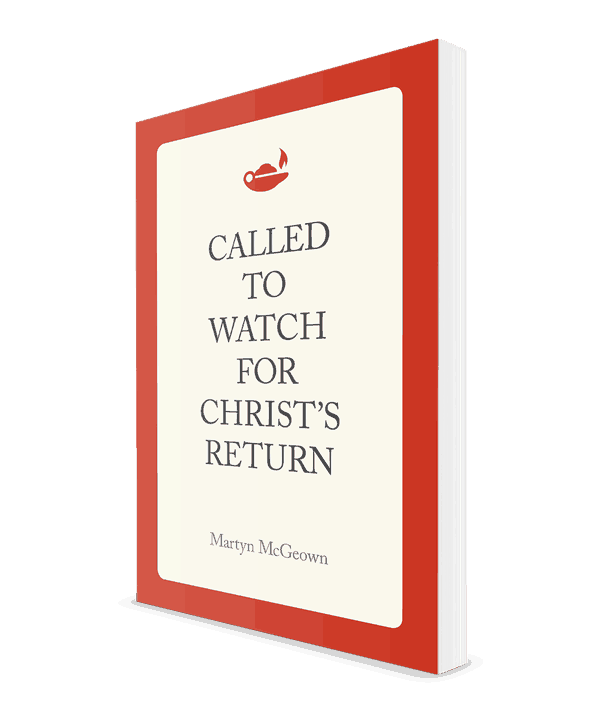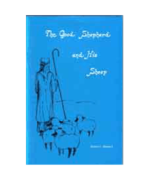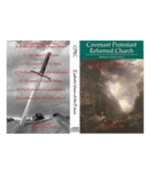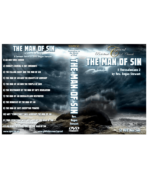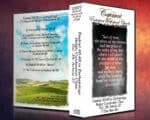On the Mount of Olives outside Jerusalem, a few days before He gave his life on the cross, Jesus Christ gave us detailed teaching on the subject of eschatology or the doctrine of the last things. He did so in response to his disciples’ two-part question: “Tell us, when shall these things be? and what shall be the sign of thy coming, and of the end of the world?” (Matt. 24:3). What follows in Matthew 24-25 is the Olivet Discourse.
This subject is of great interest to the child of God, not only for the disciples of that day but also for the Christian in every age. All around us “men’s hearts [are] failing them for fear, and for looking after those things which are coming on the earth” (Luke 21:26). Opportunistic teachers write lurid accounts of an apocalyptic future, hoping to sell their speculative version of science fiction “prophecy” to the masses. In the midst of it all, we need to understand the signs of Christ’s coming for our own comfort, for the coming of Jesus Christ is our hope. We look for “that blessed hope, and the glorious appearing of the great God and our Saviour Jesus Christ” (Titus 2:13).
Called to Watch for Christ’s Return gives the sober, distinctly Reformed and Amillennial exposition of Christ’s teaching, avoiding the murky waters of both Postmillennial Preterism, which sees almost everything in these chapters as fulfilled in AD 70, and Premillennial Dispensationalism, which promises a future temple in a restored Jerusalem after a secret rapture of the church.
Christ had two concerns in the Olivet Discourse. First, His disciples, both then and now, must know the signs of His coming, which are those events in creation, in the church and among the nations which indicate that Christ is on His way. These signs are footsteps, which those who have an ear to hear can recognize as the approach of the Lord. But Christ is not satisfied with that because mere “sign-gazing” can lead to speculative, idle, foolish living. Christ did not give us these signs to satisfy our curiosity, but so that we might be ready for Him when He comes. Therefore, Christ’s second concern was the readiness of his disciples, which is expressed in his urgent and repeated warnings to watch for His coming in light of the signs. That, too, is the twofold concern of this exposition of the Olivet Discourse. Watch, pray, and serve the Lord with an eye to these signs.
Rev. Martyn McGeown grew up in Co. Tyrone, N. Ireland, graduated from the Protestant Reformed Theological School in Grand Rapids, Michigan, USA, in June 2010, and has been the missionary-pastor of the Limerick Reformed Fellowship in the Republic of Ireland, since July 2010.
“I am at page 92 of Rev McGeown book [after buying it just 24 hours ago]. It is a really good book; worth double the price … [A week later,] I have read my copy and am starting my second go.” – Co. Antrim
“This is a great book. It is very easy to read and uses common-sense exegesis.” – N. Ireland
“I am greatly enjoying the book by Pastor McGeown. Its chapter on “The Abomination of Desolation” which deals with Daniel’s 70 weeks makes so much more sense than the view of the dispensationalists. As I read it I was struck with sadness at the amount of time I have wasted within this system of eschatology.” – Belfast
“This is a really easy and straightforward read that makes sense as you read it!” – N. Ireland
“My thanks to Rev. McGeown for the lovely, precious Called to Watch for Christ’s Return. I’ve nearly finished part 1 and it has been a great blessing!” – England
“I have just finished rereading the first part of Called to Watch for Christ’s Return. It is such a wonderful book and so very encouraging.” – England
“Love Called to Watch for Christ’s Return … This afternoon I have been reading the super exposition in Rev. McGeown’s book on the parable of the talents, it made me think about what area of service the Lord has given to me.” – England
“The high commendation was right. An excellent work!” – London
“I enjoyed the book by Martyn McGeown Called to Watch for Christ’s Return.” – Cambridge
“Concisely written book dealing with Reformed Christian Eschatology, Amillennialism. Bravo, Rev. McGeown.” – Rep. of Ireland
“… a fine example of good exegesis and sermonizing, combined into a commentary. I am teaching eschatology this semester and have actually added [the] book to the REQUIRED READING section of my syllabus. Students will be required to read the book in connection with our discussion of the signs of the times.” – USA
“I’m just now reading Rev. McGeown’s book and love it.” – Minnesota, USA
“Just wanted you to know I really enjoyed [the] book, Called to Watch for Christ’s Return. I read it last week and was very much impressed by the good way you criticized pre- and postmillennialism … We also told our church librarian that we really enjoyed you writing.” – Hudsonville, Michigan, USA
“Very well written and easy to understand.” – Illinois, USA
“I am halfway through [the book]. The chapter on ‘The Great Tribulation’ pricked me. Here’s one of the ponder-worthy words: ‘We must be faithful in small things, watching and praying that we will be faithful in that day. But we must not fear. Christ will provide sufficient grace to endure the persecution when it comes’ (p. 126).” – Philippines
“Thoroughly enjoyed this clear and edifying exposition of Scripture.” – Alberta, Canada
“I have begun reading … Called to Watch for Christ’s Return, and am enjoying it immensely.” – Australia
REVIEW 1
Turn off the TV, the computer, the tablet and the smartphone, and watch. “Watch what?” you ask. Watch for Christ’s return—that is, know the signs of Christ’s return and be ready for his coming.
Knowing the signs of Christ coming and growing in readiness for his return is the important subject of a new RFPA publication I was happy to find in my church mailbox on a recent Sunday. The author is Rev. Martyn McGeown, member of the Covenant Protestant Reformed Church in Ballymena, Northern Ireland and missionary pastor of the Limerick Reformed Fellowship in the Republic of Ireland.
The contents of this book arise from a series of sermons on Matthew 24 and 25 that Rev. McGeown preached in Limerick between August of 2011 and January of 2012, barely a year after his graduation from the Theological School of the Protestant Reformed Churches in the summer of 2010. Read this book and you will find that Rev. McGeown is gifted beyond his years in both preaching and writing. The RFPA has found an able author and I hope that this is the first of many books to come from the pen of Rev. McGeown, Lord willing.
Throughout this book, Rev. McGeown makes the difficult understandable and practical for the believer. Matthew 24 and 25 are difficult passages, not only because they can be hard to understand but, more importantly, because they vividly set forth the lot of the believer in this life. The way of the believer in this life is the way of suffering and persecution that grows in intensity as the end draws near. A Reformed amillennialist, Rev. McGeown does not sugar coat this reality, but shows how this suffering “serves the coming of Christ and the end of all things” (p. 46).
Throughout this book, the author makes the material very practical for the reader. He doesn’t beat around the bush or blunt the sharp edges of the reality of persecution for the believer. One example, from the many available in the book, serves to prove this point. In Chapter 4 (“The Church Hated By All Nations”), Rev. McGeown writes,
Matthew 24 does not specify who will deliver the Christians up to be afflicted, but Mark and Luke add that it will be in some cases former friends and even family members. Jesus had already warned about this: he had not come to bring peace, but to bring a sword (Matt. 10:34). The result would be opposition and enmity among friends and even families. Now he underlines it again: you will be handed over to the authorities to be afflicted and to be killed. Your friends will do it! Your parents will do it! Your brothers and sisters will do it! Your sons and daughters will do it! “Now the brother shall betray the brother to death, and the father the son; and children shall rise up against their parents, and shall cause them to be put to death” (Mark 13:12). “And ye shall be betrayed both by parents, and brethren, and kinsfolk, and friends; and some of you shall they cause to be put to death” (Luke 21:16).
What a bitter pill that will be to swallow! Surely it is bad enough to be arrested; bad enough to be treated as a criminal; bad enough to be thrown into prison, to be tortured, to be put to death. But to watch as your own family do it! To hear your nearest and dearest say, “Take him. He is a Christian. We hate him. We are not on his side.” How dreadful! (p. 51)
So … turn off the TV, phone and computer … and live in reality … and watch! Know the signs of Christ’s imminent return and grow in your readiness for his return. Read this excellent book!
Aaron Cleveland (Grand Rapids, MI, USA)
REVIEW 2
Called to Watch for Christ’s Return began as a series of sermons preached by the author on the Olivet Discourse, a speech in which “Jesus proclaims his second coming, an event with which history will come to a dramatic and sudden close” (ix). These sermons covered Matthew 24:1-31, dealing with the signs of Christ’s coming—deceivers, the preaching of the gospel, the great tribulation, and more. These sermons also dealt with Matthew 24:32-25:46, treating the subject of watching for Christ’s return—the unknown time of his return, Christ’s coming as in the days of Noah, parables associated with his coming, and more. These sermons comprise the content of the book. We are thankful that these fine sermons have reached a wider audience through their publication in book form.
The main strength of Called to Watch for Christ’s Return is its exegetical precision and richness. The material is always mined from the text. Concepts are carefully defined and developed, and difficult passages are lucidly explained. Especially does this clarity of exegesis become important in passages that deal with such matters as the abomination of desolation (Matthew 24:15-20) and the unknown time of Christ’s return (Matthew 24:36). Such passages are often misinterpreted, leading to a host of errors. Thus, proper, sober interpretation is critical in these kinds of difficult passages. McGeown’s work is a needed and timely contribution to the study of eschatology (the end times), for two reasons. First, there are so many today teaching unbiblical ideas about the end of the world. Called to Watch for Christ’s Return interacts with these systems of thought, dismantles them, and plainly sets forth the biblical, Reformed, amillennial position. Second, we live in the last days, and that alone makes this book important. We must know what to expect in these last and evil days, we must be admonished to watch for the coming of our Lord, and we must be comforted.
McGeown’s work is necessarily polemical. That is, it is a work which exposes and refutes the errors. Advocates of both postmillennialism and premillennial dispensationalism seek to find evidence for their views in Matthew 24 and 25. Postmillennialism teaches that the Olivet Discourse—at least some of it, if not all of it—is a reference exclusively to the destruction of Jerusalem in AD 70. This interpretation is fundamental to the postmillennial position, lest the events of which Jesus speaks interfere with postmillennialism’s future golden age. In contrast, premillennial dispensationalists claim that the Olivet Discourse refers exclusively to the future—not to AD 70, but to a future Jerusalem and a future temple. Negatively, the author exposes these errors, and demonstrates how a sober interpretation of Jesus’ teaching pulls the rug out from under these millennial systems. Positively, McGeown sees Matthew 24 and 25 as a blending of the destruction of Jerusalem in AD 70, on the one hand, and Jesus’ second coming, on the other hand. The destruction of Jerusalem is a type or picture of Jesus’ second coming. This view, the amillennial view, and this view alone, does justice to Jesus’ words.
In a book on watching for Christ’s return, one would expect not only polemics, but also pointed instruction and warning for believers. After all, we are all prone to spiritual slumber instead of watching for Christ’s return. The command of scripture to watch for our Lord’s coming is a weighty command, and the author conveys it well: “Watch! Christ is coming. Let us not be found sleeping when he returns, but looking for his return. Let that watchfulness begin today if it has not been our habit before, so whether he comes on the clouds or calls us in death, we will be ready to meet him” (214). Called to Watch for Christ’s Return is a stirring call to stay vigilant in these last and evil days.
The book is also comforting and warm, an approach that arises from the author’s pastoral heart for God’s people who live in the perilous days prior to Jesus’ coming. This warm tone characterizes the entirety of the book, and climaxes in the last chapter; any reader’s heart will thrill in reading this last chapter, which explains, in part, the glories of the new heavens and the new earth. Read and meditate upon this breathtaking description of heaven: “Death, sin, and the curse will be absent—forever banished from the new creation. We will enjoy spiritual joy and satisfaction in abundance, for we will enter into the fullness of our inheritance. Come, ye blessed of my Father, inherit! That is life, eternal life, life that lasts forever and has no end. Life with Christ. Life in the presence of God, fellowshipping with him. That is blessedness and joy! That is worth waiting for! Do not fear the judgment day. Do not be weary with watching and waiting. But pray, even for that great day” (280).
Our Lord is coming. Watch. Watch—by reading. Called to Watch for Christ’s Return, as a faithful exposition of Jesus’ words, will instruct you, arm you against the errors, comfort you, and quicken your hope. Come, Lord Jesus, yea, come quickly.
Rev. Ryan Barnhill

